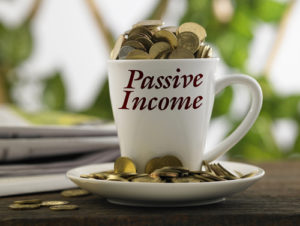Have you ever considered that true wealth might not be about accumulating more, but about needing less?
Jim Mott’s insightful quote, “You can be rich by having more than you need, or by needing less than you have,” encapsulates a powerful concept that can transform your financial journey. Let’s explore how embracing this idea can speed up your path to wealth and financial independence.
The Power of Needing Less: A Personal Anecdote
In my early days of financial exploration, I subscribed to numerous information sources: property magazines, stock newsletters, and research reports. The thirst for knowledge was insatiable, but soon I realised I was subscribing to more than I could consume.
This overabundance of information wasn’t just overwhelming—it was costly.
The turning point came when I recognised that I had enough knowledge and didn’t need constant validation from multiple sources. By terminating these subscriptions, I freed up funds to invest.
This shift in mindset, from needing more to needing less, became a cornerstone of my financial strategy.

Turning Points: Recognising the Need for Change
My financial journey wasn’t always smooth. I remember vividly the day I came home to a pile of bills I couldn’t afford to pay.
At 27, I faced a harsh reality: I needed to change my financial habits. This moment of clarity led to significant changes.
I knew I had to reduce my spending, increase my income, and start investing. This wasn’t just about managing money better; it was about changing my relationship with money and consumption.
Strategies for Increasing Your “Pay Yourself First” Amount
To truly embrace the concept of needing less, I adopted several strategies:
Reviewing and Eliminating Excessive Spending
I meticulously reviewed my credit card statements, identifying and eliminating unnecessary expenses.
This step alone helped me save a significant amount each month. Regularly reviewing your spending can reveal surprising insights into where your money is going and where you can cut back.

Cancelling Unnecessary Subscriptions
Just as I had done with my information subscriptions, I cancelled any unused or unnecessary other subscriptions. These days it would be streaming options for most.
By doing this, I realised that I didn’t miss most of these services and was able to redirect those funds towards investments.
Reducing Take-away Food Expenses
By cutting back on take-away food, I not only saved money but also improved my health. Cooking at home became a new norm, and I found that meal planning and preparation could be both enjoyable and economical.
This small change had a significant impact on my monthly expenses.
Learning New Skills to Increase Income
Investing in myself was crucial.
I took on new skills that increased my earning potential, providing a buffer against financial instability.
This included taking online courses, attending workshops, and seeking certifications that could boost my career prospects. By continuously improving my skills, I opened up new opportunities for income growth.
Investing Available Funds
With the money saved from reducing expenses and increased income, I was able to invest more.
These investments grew over time, providing additional income streams and increasing my wealth. I diversified my investments across stocks, bonds, and real estate, ensuring a balanced and resilient portfolio.

Investing Wisely: Tips and Strategies
Investing wisely is about making informed and strategic decisions. Here are some practical tips:
Review Credit Card Statements Regularly
Keep track of your spending habits. Identify areas where you can cut back and make more informed spending decisions.
This not only helps in saving money but also in avoiding debt and maintaining a healthy credit score.
Prioritise Smart Spending
Focus on spending money on things that truly add value to your life.
This might mean prioritising experiences over material possessions or investing in your health and education.
By aligning your spending with your values, you can achieve greater satisfaction and financial stability.
Start Investing Early
Even small amounts can grow significantly over time.
Use tools like compound interest to your advantage and build a diversified portfolio.
The earlier you start investing, the more time your money has to grow, thanks to the power of compounding.
Educate Yourself Continually
The financial landscape is always changing.
Stay informed about new investment opportunities and strategies to keep your portfolio robust.
This includes reading books, following financial news, and seeking advice from financial experts. Knowledge is a powerful tool in making sound investment decisions.
The Importance of a Mindset Shift
Embracing the concept of needing less requires a shift in mindset.
It’s about valuing what you have and recognising that true wealth isn’t measured by material possessions but by financial security and freedom.
This mindset shift can lead to more sustainable financial habits and a greater sense of fulfillment.

Building Sustainable Financial Habits
Developing and maintaining sustainable financial habits is key to long-term wealth.
This involves regular money planning, saving, and investing.
It also means being mindful of your financial goals and making consistent efforts to achieve them.
By building sustainable habits, you create a strong foundation for financial independence.
The Role of Financial Goals
Setting clear financial goals is essential in your journey to wealth.
Whether it’s saving for retirement, buying a home, or starting a business, having specific goals gives you direction and motivation.
Break down your goals into manageable steps and track your progress regularly.
Conclusion
Embracing the concept of needing less can be a transformative step towards financial independence.
By reassessing your spending habits, increasing your income, and investing wisely, you can accelerate your journey to wealth.
Remember, true wealth isn’t about how much you have; it’s about how little you need. As you embark on this journey, take inspiration from your experiences and the steps you’ve already taken.
The path to financial independence is a marathon, not a sprint, but with the right mindset and strategies, you can achieve your financial goals.
By focusing on “needing less,” you can pave the way to a richer, more fulfilling life. Assess your financial habits today, and take the first step towards true wealth and independence.
Claim your FREE Smart Investor call with us here, let’s uncover the challenges that are keeping you from being where you want and learn how to overcome them, simply and effectively.

